Gunfire Erupts Near IRGC Base In Iran’s Restive Province
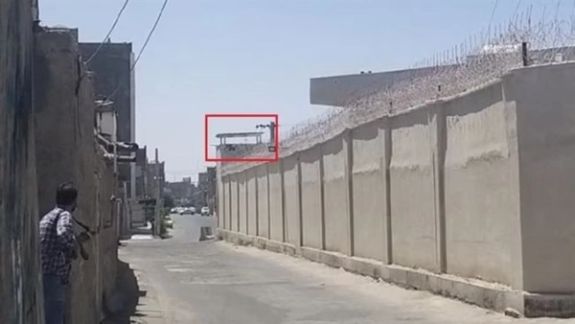
Iranian Baluch activists have reported a significant shooting incident near the Quds base of the Islamic Revolutionary Guard Corps (IRGC) in Sistan-Baluchistan province.

Iranian Baluch activists have reported a significant shooting incident near the Quds base of the Islamic Revolutionary Guard Corps (IRGC) in Sistan-Baluchistan province.
However, Governor Saeed Tajlili claimed that the shooting around the base was linked to a wedding celebration. According to initial reports, gunfire was reported last night in the vicinity of the base in Saravan. Tajlili added that military forces have detained the groom in connection with the incident.
As of now, no additional information is available concerning the circumstances surrounding the reported shooting.
The development comes on the heels of a recent attack on December 15 by the Sunni Jaish al-Adl militant group, targeting a police station in Rask, a small city in Sistan-Baluchistan Province. Iranian state media and Baluch groups reported a death toll of at least 12 police officers and several attackers killed during prolonged gunfire at the main police headquarters. Seven police officers sustained injuries, some critical.
Sistan-Baluchistan, an economically challenged province with a significant Sunni population of the Baluch ethnic group, grapples with ongoing tensions with Iran's Shiite clerical rulers. Regular clashes between security forces, Sunni militants, and drug smugglers characterize the region.
Discrepancies persist in casualty figures, with official reports stating 12 officers killed and at least seven injured, while Jaish al-Adl insists on a higher toll of 50.
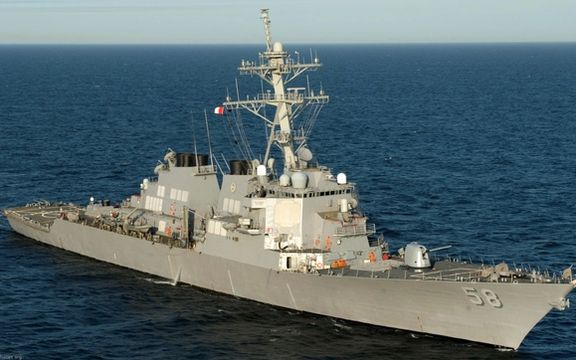
Iran was "deeply involved" in planning drone and missile attacks against commercial vessels in the Red Sea by providing intelligence, the White House said on Friday.
This is the clearest statement yet implicating Iran by the Biden administration in the Red Sea attacks that has threaded softly with Iran, according to critics. Iran has so far not responded to the US statement.
Yemen’s Houthis, who receive military assistance and all types of weapons from Iran began launching attacks on commercial shipping in the Red Sea from mid-November following Iranian Supreme Leader Ali Khamenei’s call to block Israeli commerce.
Houthis, who say their attacks are in support of Hamas under siege by Israel in Gaza, have forced shippers to change course and take longer routes around the southern tip of Africa.
"We know that Iran was deeply involved in planning the operations against commercial vessels in the Red Sea. This is consistent with Iran's long-term materiel support and encouragement of the Houthis' destabilizing actions in the region," White House national security spokeswoman Adrienne Watson said in a statement.
"This is an international challenge that demands collective action," Watson said.
Iran denies involvement in attacks by the Houthis in the Red Sea, but state media praise the Houthi actions, as well as Hamas and attacks by other Iranian proxies against US bases in the region. Apart from the Red Sea, militant groups in Iraq and Syria have launched more than 100 drone and rocket attacks on US interests.
Iranians because they're really calling the shots here."
The US last week announced a naval coalition involving 20 countries aimed at helping safeguard vessels from attacks in the Red Sea. Some of the countries involved have said operations to protect commercial traffic will be as part of existing naval agreements.
However, it is not clear if the naval coalition is a defensive arrangement or will conduct retaliatory attacks to deter the Houthis.
"I am absolutely stunned that we're still sitting there in a defensive mode," said former Vice Chief of Staff of the US Army Gen. Jack Keane in an interview with Fox News on December 15. "To shut these people down, you have to take away their capability to do it... You go after the rockets… You go after their entire command and control system… you go after their entire command and control system… you go after the Iranians because they're really calling the shots here."
On December 16, White House National Security Advisor Jake Sullivan stated, "While the Houthis are pulling the trigger, they're being handed the gun by Iran. And Iran has a responsibility to take steps themselves to cease these attacks." However, no attempt has been made to degrade the Houthis ability to disrupt shipping that is impacting oil prices and disrupting international commerce.
“We have capabilities to sink your fleet, your submarines, your warships,” a top Houthi official said, according to the IRGC-affiliated Tasnim news agency. “The Red Sea will be your graveyard.”
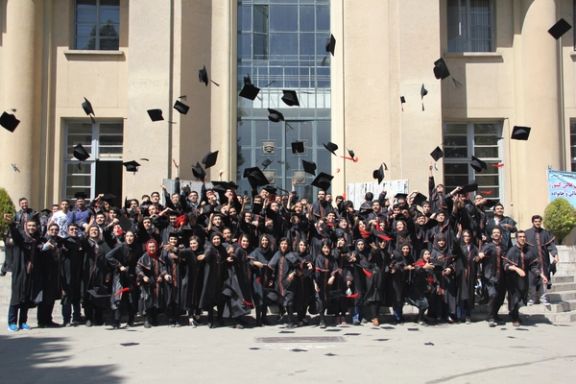
Tehran’s academic policies have received widespread criticism after Iran was announced to be among the countries with the highest rate of retracted scientific papers.
In a report published earlier in the month by Nature, considered by many as the world’s leading journal of science, Iran ranked seventh in the list of the countries with the highest retraction rates with an average of 16.7 retractions per 10,000 papers.
Only Saudi Arabia, Pakistan, Russia, China, Egypt and Malaysia had a higher retraction rate in comparison with Iran, the report said.
Nature’s report analyzes the academic productions of the countries with 100,000 papers published over the past two decades.
Published papers get retracted when it is discovered that they violate ethical and professional guidelines due to scientific misconduct or plagiarism.
In June, Iran’s parliament announced that as many as half of the postgraduate theses produced between 2019 and 2022 have been fraudulently written.
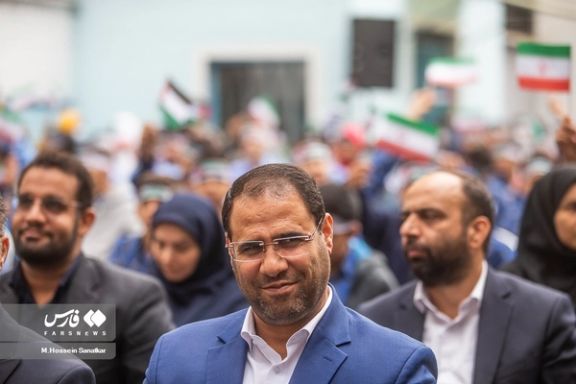
Nature’s report drew the attention of university professors and researchers in Iran who have long been critical of the establishment’s over-emphasis on publishing papers in national and international journals.
Iran International interviewed several university professors and researchers in Iran about the worsening condition of conducting research projects in the country. They spoke on condition of anonymity fearing the Islamic Republic’s crackdown on critics.
An assistant professor at the University of Mazandaran told Iran International that the field of research in Iran has turned into a very lucrative market where “products” can easily be bought and sold.
Unofficial advertisements about the sale of research papers, theses, dissertations and semester projects can be found in university campuses, she said, adding that over recent years, offices have been founded in Tehran and many other cities that offer to write research papers for students and teachers at an exorbitant price.
She blamed the political ambitions of the Islamic Republic for the creation of such a notorious “research market,” noting that Tehran officials have time and again stressed that Iran should rank first in the region in terms of academic productions.
As a result, the research “obligations” for university teachers, postgraduate students and researchers have been devised by the government’s officials in a conscious attempt to “force” academicians to write as many papers as possible regardless of their quality or their industrial and practical utility, she went on to say.
One university professor told Khabar Online in Tehran that Iranian research has failed to solve pressing problems facing the country. “What is the purpose of these featureless articles, which are occasionally accused of being counterfeit and also jeopardize the country's international scientific reputation," the professor said.
A PhD holder in French literature from the University of Tabriz, one of Iran’s leading academic institutions, told Iran International that the pressure on teachers and students in Iranian universities to write a large bulk of research papers in fact reflects the authoritarian structure of the political establishment where quantity precedes quality.
If a PhD student does not reach the research quotas they will not be allowed to defend their dissertation, the researcher said, adding that the pressure starts with the Ministry of Science, university professors having no other way but to follow the ministry’s guidelines in order to keep their teaching positions.
According to a PhD student of TEFL at the University of Beheshti, many postgraduate students in Iran have no “research agenda” for themselves as is the case with the world’s top universities.
We are expected to work like “paper-manufacturing machines” so that our supervisors can get promoted, she said. De-motivated and under pressure, there are many students who resort to plagiarism or assign somebody else to complete their research projects, she went on to say.
Research published last year in the Journal of Academic Ethics, concluded that "Iran lags behind other countries with regards to what is known about contract cheating and how to address it", citing major reform needed in policy and academia.
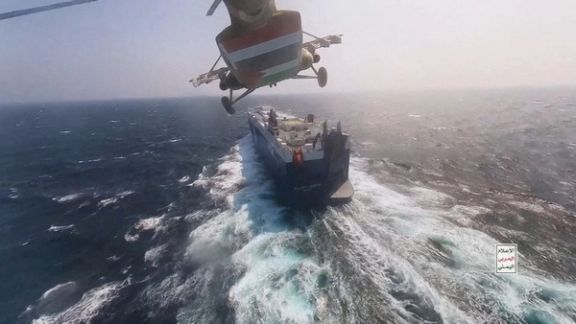
Iran was "deeply involved" in Yemen's Houthis’ operations against commercial vessels in the Red Sea and its intelligence was critical to facilitate the attacks, the White House said on Friday.
"We know that Iran was deeply involved in planning the operations against commercial vessels in the Red Sea. This is consistent with Iran's long-term materiel support and encouragement of the Houthis' destabilizing actions in the region," White House national security spokesperson Adrienne Watson said in a statement. "This is an international challenge that demands collective action.”
The Wall Street Journal reported Friday that Iran’s Revolutionary Guards are providing real-time intelligence and weaponry, including drones and missiles. Citing Western and regional security officials, the report read, "Tracking information gathered by a Red Sea surveillance vessel controlled by Iran’s paramilitary forces is given to the Houthis, who have used it to attack commercial vessels passing through the Bab el-Mandeb strait in recent days."
“The Houthis don’t have the radar technology to target the ships. They need Iranian assistance. Without it, the missiles would just drop in the water," said a Western security official.
Tensions are escalating in the region as Iran-backed Houthis increase attacks on shipping, targeting commercial vessels with drones and missiles ostensibly to exert pressure on Israel amid the ongoing conflict in Gaza. The attacks are forcing shippers to change course and take longer routes around the southern tip of Africa.
Hamas, another Iran-backed militia group, launched a multipronged war against Israel on October 7, killing about 1,400 mostly civilians with 240 hostages taken into Gaza. Israel has been pounding the coastal sliver to uproot Hamas, which says 20,000 people have been killed in the retaliatory offensive. The conflict is spiraling out across the region as other Iranian proxies have intensified attacks against Israeli and US targets.
The US last week announced a naval coalition involving 20 countries aimed at helping safeguard vessels from attacks in the Red Sea. Some of the countries involved have said operations to protect commercial traffic will be as part of existing naval agreements. Hours after Washington launched the multinational force, Houthis threatened to ‘sink’ US warships.
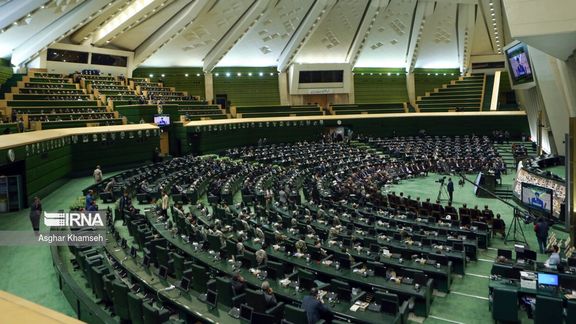
With the announcement of the disqualification of thousands of candidates in November 2023, the orchestrated parliamentary elections in Iran reached a new low.
However, this was not the first step in this process. For the first time in the Islamic Republic, a "pre-registration" stage was introduced, instructing potential candidates to submit their required documents on the Ministry of Interior's website.
More opportunities to disqualify
The introduction of this pre-registration stage, which occurred several months before the official registration, aimed to provide more opportunities for the interior and intelligence ministries, and the Guardian Council to scrutinize applicants' files, align them with the standards of provincial monitoring boards, and expedite the review process. The Ministry of Interior and the Guardian Council, now working in close coordination, feared that individuals who had previously passed their filters might later be disqualified if their online activities, such as "inappropriate" tweets or photos, did not meet the standards of the provincial monitoring boards in terms of lifestyle and obedience to the core of the regime. This allowed the government to disqualify candidates in two stages, avoiding the sudden disqualification of tens of thousands of individuals all at once.
Absolute Obedience
The main condition for passing these various sieves was not political independence or a criminal background, but rather absolute obedience. This condition has been explicitly emphasized by hardliner regime insiders: "Absolute guardianship [rule by Supreme Leader] is not enough; absolute obedience must also be next... The condition for people to participate in the battle is absolute obedience. Obedience is important, and the first principle of stability is absolute obedience to the Guardian Jurist,” a firebrand cleric Morteza Aqa-Tehrani said.
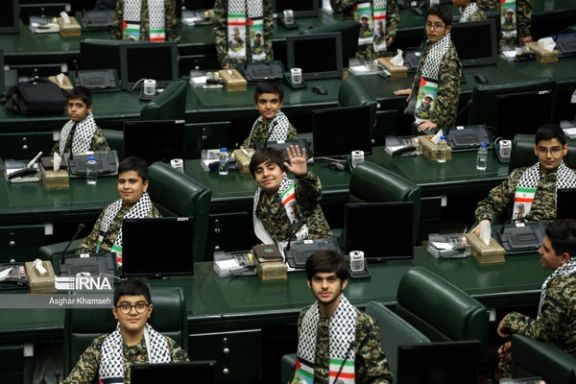
New Totalitarian Parties: Sharyaan And Azma
The 11th Majles elections in 2020 was the end of the presence Reformists’ and the moderates in the parliament. Hardliner allies of Supreme Leader Ali Khamenei blocked most of them from getting elected to parliament, using the Guardian Council’s candidate vetting scheme. The new generation of the totalitarian hardliner faction, embodied in Paydari (endurance) party, paved their way to power by dominating the 12th parliament. They have launched two new parties recently: Sharyaan and Azma.
The members of Sharyaan (Persian acronym for the strategic network of supporters of the Islamic revolution) are mainly the high-ranking managers of the Raisi administration whose goal is to curtail the political influence of the Paydari Party and "Shana" (the Revolutionary Forces Coalition Council), which works under the general supervision of Haddad Adel, a close ally of Ali Khamenei. In the statement of this group, there are no policy recommendations and program for the country. They have announced their intention only to create a network for streamlining and gaining government positions. The key person of this group is Hamid Rasa`ee, who has a serious conflict with Mohammad Bagher Ghalibaf, the speaker of parliament, in terms of filling posts with their cronies.
Hossein Allah Karam, a member of Hezbollah, has also launched a party called Azma to participate in the upcoming elections. His party’s agenda is to enforce Khamenei’s orders.
The members of these groups are mainly recycled from the Ahmadinejad administration, and ex-members of the Khamenei’s office who want to be promoted to higher positions. By closing the road for the previous insiders, the Guardian Council has opened the way for them to run.
Purification
In domestic politics, repression even against regime insiders has escalated. This policy of eliminating people with any sign of disobedience has been called “purification”. It targets insiders who are not 100 percent loyal to Ali Khamenei. "Today we have reached the stage of purifying the revolution and we will definitely win", Mehdi Ta`eb, the commander of Ammar group and brother of Hossein Ta`eb, the former head of IRGC intelligence, said during the 2021 presidential elections. The Guardian Council is following this direction. By acting to stamp out “the impurity” of a part of the government, the ruling class is getting smaller.
Future implications
The result of this type of election engineering has been the entry of incompetent and corrupt people into the Majles and the abandonment of its core mission. In the 11th Majles, checks and balances were forgotten, and the legislature was not even able to draft laws, approving most executive branch bills without expertise. Dozens of investigation plans were initiated in the parliament, but due to lack of follow-up and orders from Khamenei’s office, the IRGC, and the executive branch, they were abandoned. Beyond that, the Majles has had no input in the most important affairs of the country, including a 50-percent inflation rate, astonishing government corruption, regional tensions made worse by the IRGC, and unprecedented emigration of skilled professionals.
Here are some of the scandals of the 11th Majles: manipulation of the budget figures by the Speaker after the approval of the budget in 2021; rejection of the credentials of the reformists after being elected; bribing members of the Tehran Municipality to shelve investigations; humiliation of the Speaker of the Majles by the Russian government, and reneging on the promise for transparent voting. Now these same politicians are aiming to control the fate of the 12th Majles.
The IRI 12th Majles will be another slough house where washed-up Basij and IRGC members go to spend what is left of their failed careers.

Microsoft says an Iranian cyber espionage group is using a newly developed malware called FalseFont backdoor for intelligence gathering on defense industry companies worldwide.
“Microsoft has observed the Iranian nation-state actor Peach Sandstorm attempting to deliver a newly developed backdoor named FalseFont to individuals working for organizations in the Defense Industrial Base (DIB) sector,” said Microsoft Threat Intelligence Unit, the firm’s global network of security experts.
Peach Sandstorm, (formerly Holmium), also known as APT33, Elfin, and Refined Kitten, has recently focused on organizations in the US Defense Industrial Base (DIB), which includes hundreds of thousands of American and foreign entities and subcontractors that perform work for the US Department of Defense (DOD) and other Federal departments and agencies.
The first instances of FalseFont in action were detected against targets in early November 2023.According to Microsoft’s investigative team, Peach Sandstorm is actively pursuing intelligence gathering for the Iranian government. Microsoft did not attribute the hacking to any particular Iranian government entity, but the Islamic Revolution Guard Corps (IRGC) is known for its large ‘cyber army’ that engages in both suppression of internet access and cyber surveillance within Iran and disinformation activities abroad, as well as sophisticated hacking of Western and other targets.
The new report follows Microsoft’s earlier findings, outlined in a September 2023 blog post, where Peach Sandstorm was identified as targeting sectors such as satellites and pharmaceuticals on a global scale.
Earlier this year, Microsoft warned that Russia, Iran, and China are likely to plan to influence the upcoming elections in the United States and other countries in 2024. Microsoft's Threat Analysis Center also confirmed that Iran has intensified its cyberattacks and influence operations since 2020.